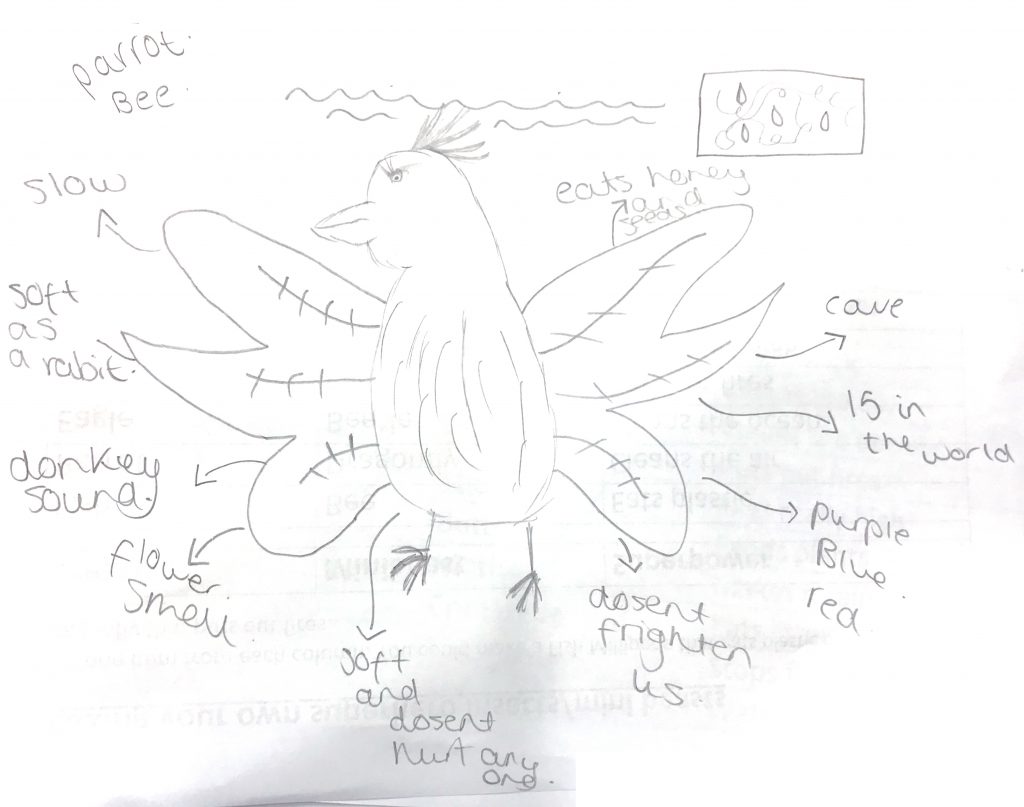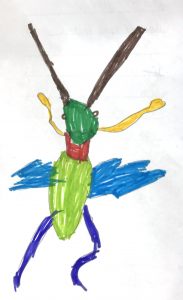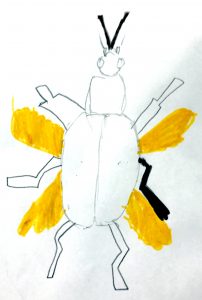New 2021 Summer School Workshops (1)
Workshops for KS1, KS2 and KS3 (Time 1 to 2 hours per group)
During the Summer I have been delivering a brand new creative writing workshop, as part of the #HAF2021 Summer Schools, to children aged 5 to 12 at various locations in Rochdale, Middleton and Heywood. The “Superhero Insects and Mini-Beasts” workshop is now available for bookings from September onwards – please email seamus@onepoetsvision.co.uk for availability.
In this fun and informative workshop children write either poems or stories after hearing my light hearted poem, “The Plastic Mantis”about a fictional superhero beast that can turn plastic waste into useful material. Children are encouraged to be creative and think beyond the usual constraints they might sometimes have in a classroom setting. By mixing together insects of mini beasts with other creatures to create their own environmental superheroes the poems and stories have a unique appeal.

In this workshop children will learn about a range of insects and mini beasts including Bees and Earthworms, they find out what they contribute to the environment, what are the largest and smallest, what they eat, how they hide and lots of interesting facts . To help get ideas flowing a wide range of visual images and fact-cards are available, including a life size cut-out picture of the largest insect that ever lived and template sheets that are used to produce either poems or stories.
When the children have written their poems or stories they can read them out, if they choose to, and audio recordings can be made. If children are not comfortable reading their work out they can choose for an adult to read for them.
During the workshops delivered for the Health Activity and Food sessions by YourTrust, Rochdale, young people have created a BeeLion as fierce as a shark, a WolfBee as big as a BMW that can make it rain and an Elepede with 100 legs that can put out fires.


For young people the opportunity to write creatively, without being tied by specific rules, or being limited by their ability to spell or use perfect grammar, helps to develop creative thought and imagination. Working in this way helps with problem solving skills and logic whilst still allowing them to explore the familiar alongside the unknown and magic. Telling stories and writing poems is a highly personal set of skills and children benefit from exploring their own opinions and their own creative voices.
After completing their poems the children have the opportunity to draw or colour images using the range of source material provided.
To do this without being judged, marked or graded, brings a freedom that can rarely exist in the school curriculum. That freedom makes it fun to write, read and in some cases to record of perform their work.
